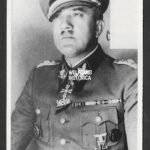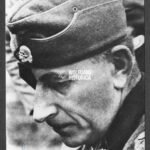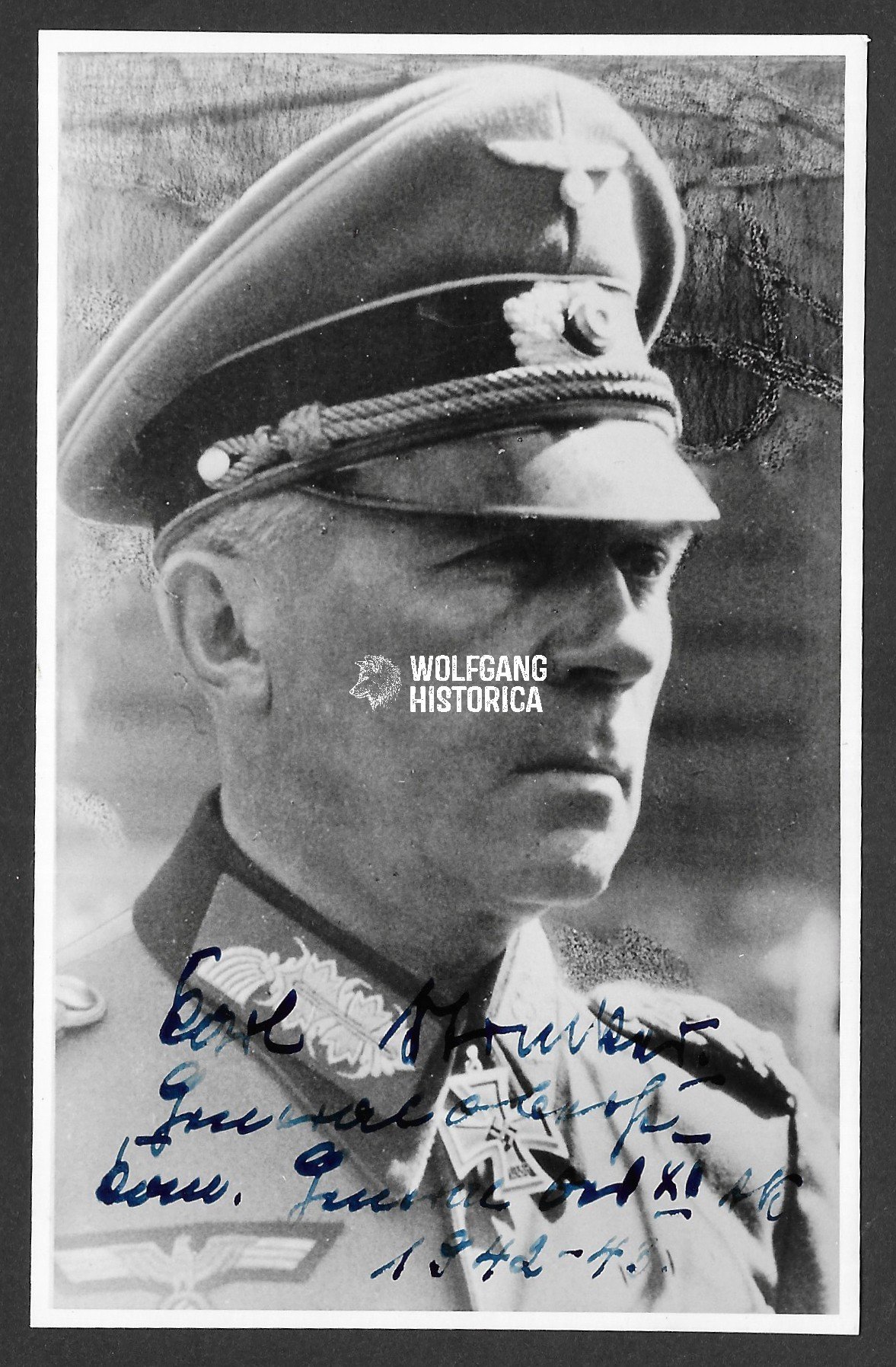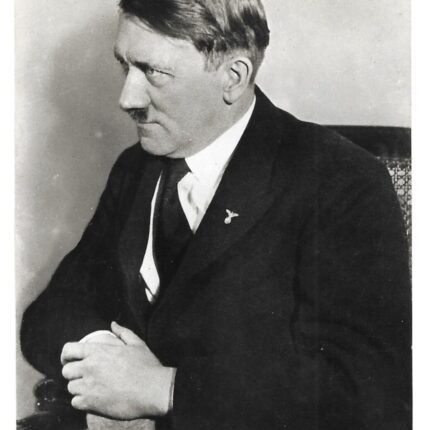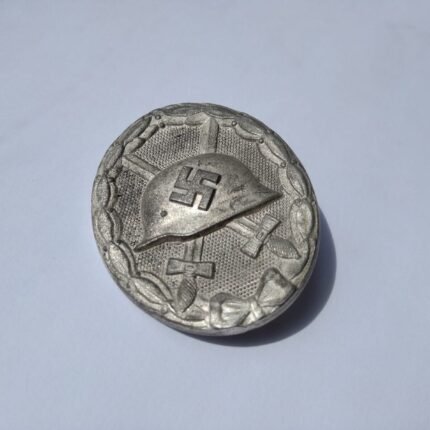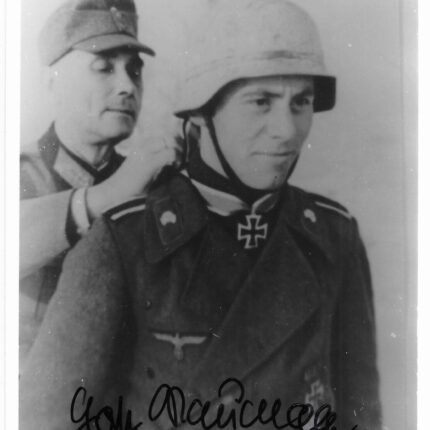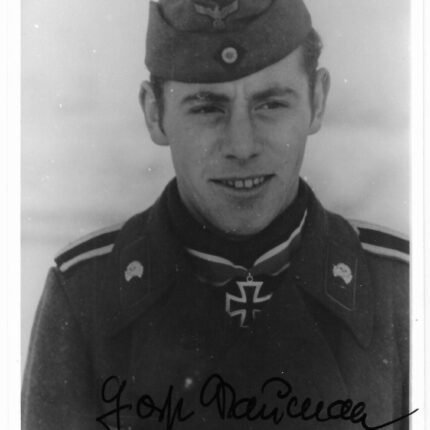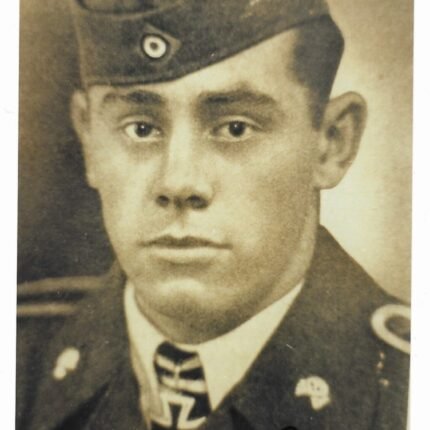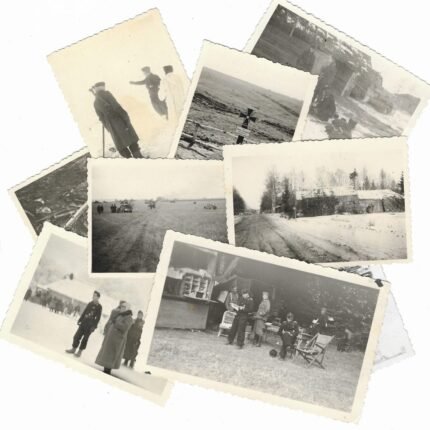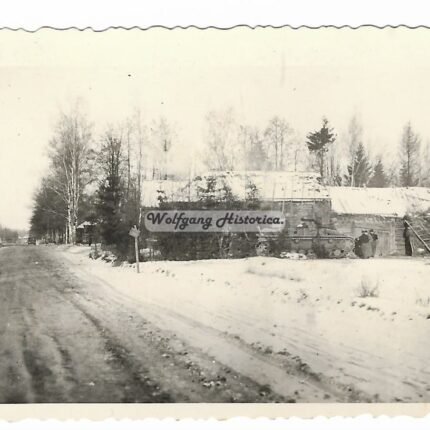Karl Strecker – 79. Infanterie-Division & XI. Armeekorps (Stalingrad!)
€85,00
Original Postwar Signature on a Postwar Photo of Karl Strecker. Generaloberst Karl Strecker (20 September 1884, Radmannsdorf/West Prussia – 10 April 1973, Riezlern/Austria) was a career German officer who rose to the rank of Generaloberst in the Wehrmacht. A veteran of the First World War and interwar police service, he later commanded the 79. Infanterie-Division during the invasions of Poland, France, and Russia, before leading XI. Armeekorps into the battle of Stalingrad. Promoted to Generaloberst on 31 January 1943, he was one of the senior commanders forced to surrender in the northern pocket of Stalingrad on 2 February 1943. He spent over twelve years in Soviet captivity before being released in October 1955.
Awards and Decorations
-
Knight’s Cross of the Iron Cross (Ritterkreuz des Eisernen Kreuzes) – 26 October 1941, as Generalleutnant and Kommandeur of 79. Infanterie-Division
-
German Cross in Gold (Deutsches Kreuz in Gold) – 25 January 1943, as General der Infanterie and Kommandierender General of XI. Armeekorps
-
Order of Michael the Brave, 3rd Class (Ordinul Mihai Viteazul Clasa III, Romania) – 6 November 1942, as General der Infanterie and Kommandierender General of XI. Armeekorps
Career Highlights
-
Early Career: Entered the Imperial Army in 1905 with Infanterie-Regiment 152. Served as adjutant, company and battalion commander during WWI.
-
Police Service: After leaving the Reichswehr in 1920, continued as a police officer, eventually commanding the Police School Münster and rising to Generalmajor der Polizei (1934).
-
Command of 79. Infanterie-Division: Led the division from the invasion of Poland (1939) through France (1940) and into Operation Barbarossa (1941). Awarded the Knight’s Cross for distinguished leadership in Russia.
-
Higher Command: Promoted to General der Infanterie in 1942, commanded XVII. Armeekorps and then XI. Armeekorps during the drive into southern Russia.
-
Stalingrad: Promoted to Generaloberst on 31 January 1943, just one day before the surrender of the northern pocket at Stalingrad. His corps was among the last formations to capitulate on 2 February 1943.
-
Soviet Captivity: Held in the USSR from 1943–1955, one of the longest periods of imprisonment among German generals, only freed after Adenauer’s negotiations.
-
Postwar: Retired in Austria, passing away in 1973.
Item Details
-
Authentic postwar signature of Generaloberst Karl Strecker.
-
Signed on a postwar photograph.
-
Condition: Well-preserved, clear autograph.
Collector’s Note
Karl Strecker’s role as one of the highest-ranking generals captured at Stalingrad, coupled with his promotion to Generaloberst during the final days of the battle, make his autograph highly significant for collectors. His twelve-year Soviet captivity and eventual release in 1955 place him among the most notable survivors of the Stalingrad disaster. Items bearing his signature offer direct historical connection to one of the most decisive battles of the Second World War.
Out of stock
Original Postwar Signature on a Postwar Photo of Karl Strecker. Generaloberst Karl Strecker (20 September 1884, Radmannsdorf/West Prussia – 10 April 1973, Riezlern/Austria) was a career German officer who rose to the rank of Generaloberst in the Wehrmacht. A veteran of the First World War and interwar police service, he later commanded the 79. Infanterie-Division during the invasions of Poland, France, and Russia, before leading XI. Armeekorps into the battle of Stalingrad. Promoted to Generaloberst on 31 January 1943, he was one of the senior commanders forced to surrender in the northern pocket of Stalingrad on 2 February 1943. He spent over twelve years in Soviet captivity before being released in October 1955.
Awards and Decorations
-
Knight’s Cross of the Iron Cross (Ritterkreuz des Eisernen Kreuzes) – 26 October 1941, as Generalleutnant and Kommandeur of 79. Infanterie-Division
-
German Cross in Gold (Deutsches Kreuz in Gold) – 25 January 1943, as General der Infanterie and Kommandierender General of XI. Armeekorps
-
Order of Michael the Brave, 3rd Class (Ordinul Mihai Viteazul Clasa III, Romania) – 6 November 1942, as General der Infanterie and Kommandierender General of XI. Armeekorps
Career Highlights
-
Early Career: Entered the Imperial Army in 1905 with Infanterie-Regiment 152. Served as adjutant, company and battalion commander during WWI.
-
Police Service: After leaving the Reichswehr in 1920, continued as a police officer, eventually commanding the Police School Münster and rising to Generalmajor der Polizei (1934).
-
Command of 79. Infanterie-Division: Led the division from the invasion of Poland (1939) through France (1940) and into Operation Barbarossa (1941). Awarded the Knight’s Cross for distinguished leadership in Russia.
-
Higher Command: Promoted to General der Infanterie in 1942, commanded XVII. Armeekorps and then XI. Armeekorps during the drive into southern Russia.
-
Stalingrad: Promoted to Generaloberst on 31 January 1943, just one day before the surrender of the northern pocket at Stalingrad. His corps was among the last formations to capitulate on 2 February 1943.
-
Soviet Captivity: Held in the USSR from 1943–1955, one of the longest periods of imprisonment among German generals, only freed after Adenauer’s negotiations.
-
Postwar: Retired in Austria, passing away in 1973.
Item Details
-
Authentic postwar signature of Generaloberst Karl Strecker.
-
Signed on a postwar photograph.
-
Condition: Well-preserved, clear autograph.
Collector’s Note
Karl Strecker’s role as one of the highest-ranking generals captured at Stalingrad, coupled with his promotion to Generaloberst during the final days of the battle, make his autograph highly significant for collectors. His twelve-year Soviet captivity and eventual release in 1955 place him among the most notable survivors of the Stalingrad disaster. Items bearing his signature offer direct historical connection to one of the most decisive battles of the Second World War.


